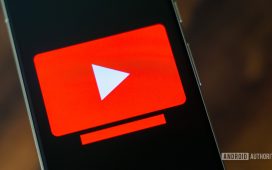I’ve always had a keen sense of direction.
After my first day of kindergarten, I was eager for another first: riding home on the big yellow school bus. What I didn’t realize was that I got on the wrong bus. As the driver made what she thought was her final drop off, I saw her concern when she spotted me in the oversized rear view mirror still sitting several rows back.
This is where my top-notch sense of direction came in handy. She drove as I navigated us to my house. She was impressed; my parents were proud.
All this to say — I never thought I’d be someone bound to GPS. Then, I moved to Los Angeles in 2019.
I always planned to ditch GPS — an acronym for Global Positioning System — after getting my bearings. But almost six years later, I found myself continuing to use it, turn by turn, even for routes I’d taken for years — work, a friend’s house, the park I love and even the grocery store down the street.
I blame the sprawling neighborhoods and sporadic clusters of traffic. It was a jarring change from Indianapolis, where single lane roads cut through cornfields and you could get across town in less than 20 minutes. In my new adopted city, where commuting takes up so much of our time, the minutes feel critical. One wrong turn feels damning.
In my new adopted city — where commuting takes up so much of our time — the minutes feel critical. One wrong turn feels damning.
A couple months ago, I decided enough was enough. I was tired of my eyes ping-ponging between the road and the map on screen, and tired of my frustration mounting when my ETA ticked up. I became more and more aware of how this affected my mood when I got to my destination.
“I’m not using GPS anymore. I’m taking back some of my autonomy,” I started joking with my friends, who mostly responded with reluctant chuckles.
Turning off the GPS
I really did it though, and I was surprised by what happened next.
Keeping the GPS off made my routine drives feel shorter, my mood less sour, and most importantly, made me more attentive to the road and drivers around me. Plus, it only took a couple weeks for me to notice I was remembering my way around better than ever.
Turns out, I might be one of the lucky ones. Mary Hegarty is a professor of psychological and brain sciences at UC Santa Barbara who researches spatial thinking, which is how we navigate and interact with spaces. She said it’s clear that certain people are better at navigation than others. What isn’t clear yet is how GPS correlates with those senses.
“It could be that they rely on their GPS a lot, and as a result, they’re not paying attention, they’re not learning layouts…and that is the reason why they have a poor sense of direction,” Hegarty said. “But it could be the other way around. These people really do have a poor sense of direction. And in fact, they should use GPS.”
Still, Hegarty has some advice for people who do want to get better at getting around without the maps. If you’re tired of using GPS all the time, here’s what she suggests.
Don’t quit cold turkey
Traffic, especially SoCal traffic, can make or break getting to a meeting or appointment on time, so I still check the status of traffic right before I head out. And if it’s truly unchartered territory, it might be wise to keep the screen out.
“Don’t just use it turn by turn. Maybe before you start out on your journey look at the overview map and sort of look at the route you’re gonna take,” Hegarty said.
The beauty in getting lost
I took a wrong turn a few weeks ago and unintentionally stumbled upon an adorable park tucked near the Culver City Arts District. I’d passed it for years and had no idea it was there. See, there’s beauty in the unknown!
Hegarty said that living life without a GPS means you’ll get a little lost and that’s OK. If there’s no urgency in getting where you’re going, let yourself go off path and give yourself some time to reorient.
People who have a growth mindset, they tend to explore.
— Mary Hegarty, professor of psychological and brain sciences
“People who have a growth mindset, they tend to explore,” Hegarty said. “If they have time, they take a different route and as a result, they get more navigation ability experience and they improve.”
Landmarks are your friend
I found I often didn’t register street names or process landmarks while using my GPS. That changed when I started keeping my eyes up and paying more attention.
Hegarty said knowing that you passed that 7-Eleven on the corner, for example, can help you get back on track if you do get a little lost. You can even say the street names or landmarks out loud as you pass them.
And remember, if you’re truly stuck, you can always pull over and check your GPS. It’s always there on your phone — if you need it.







